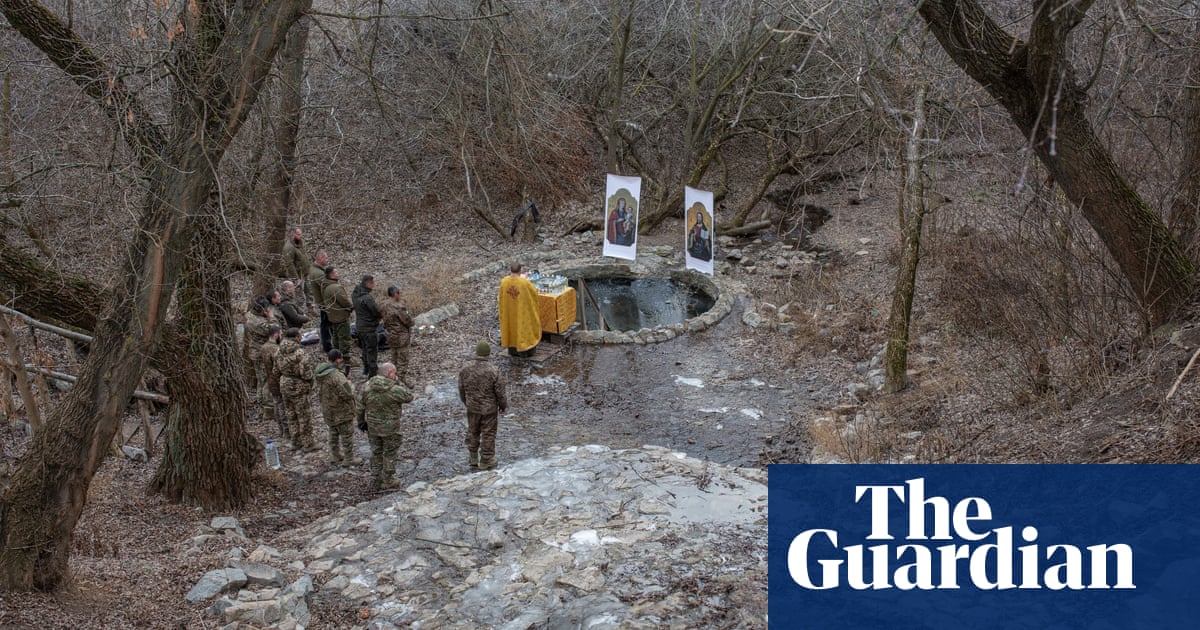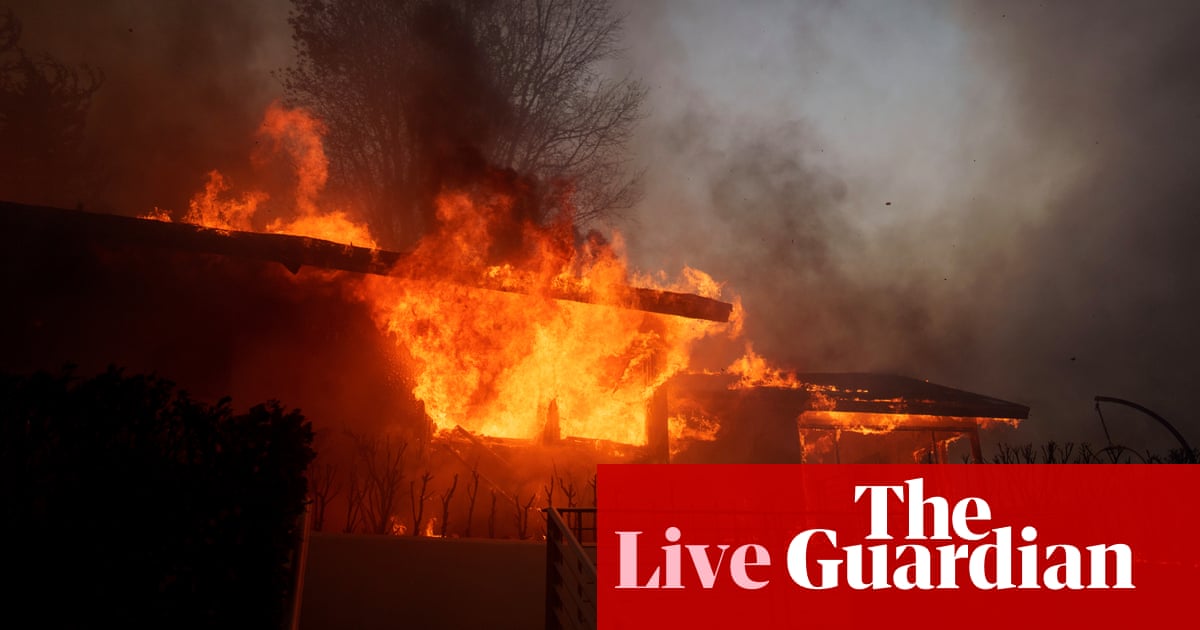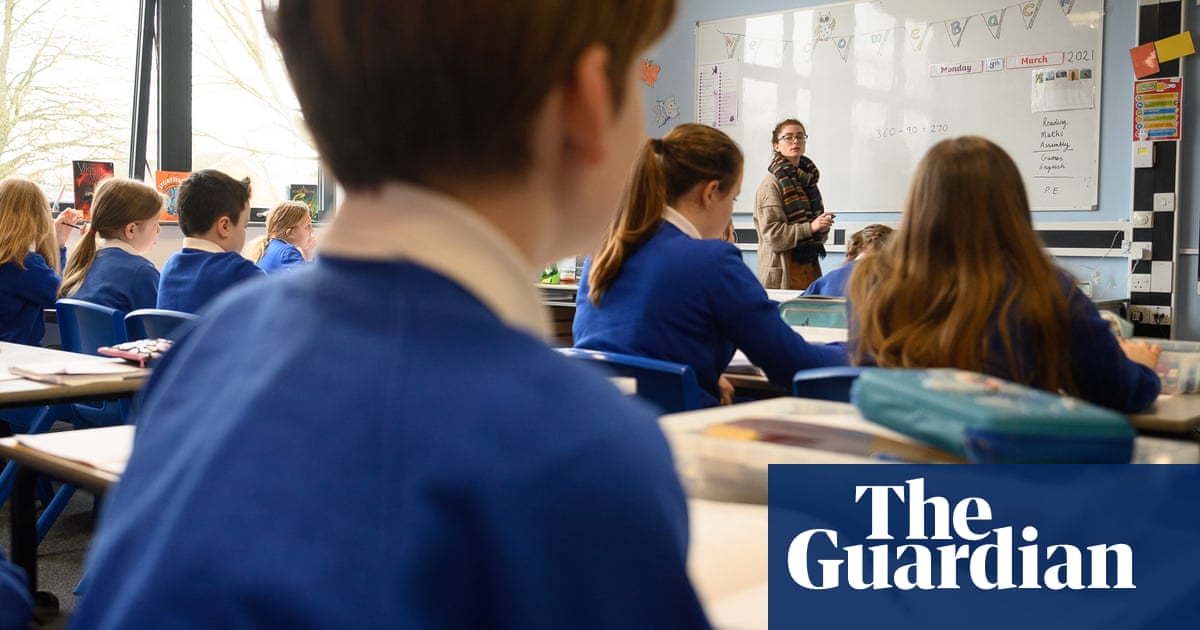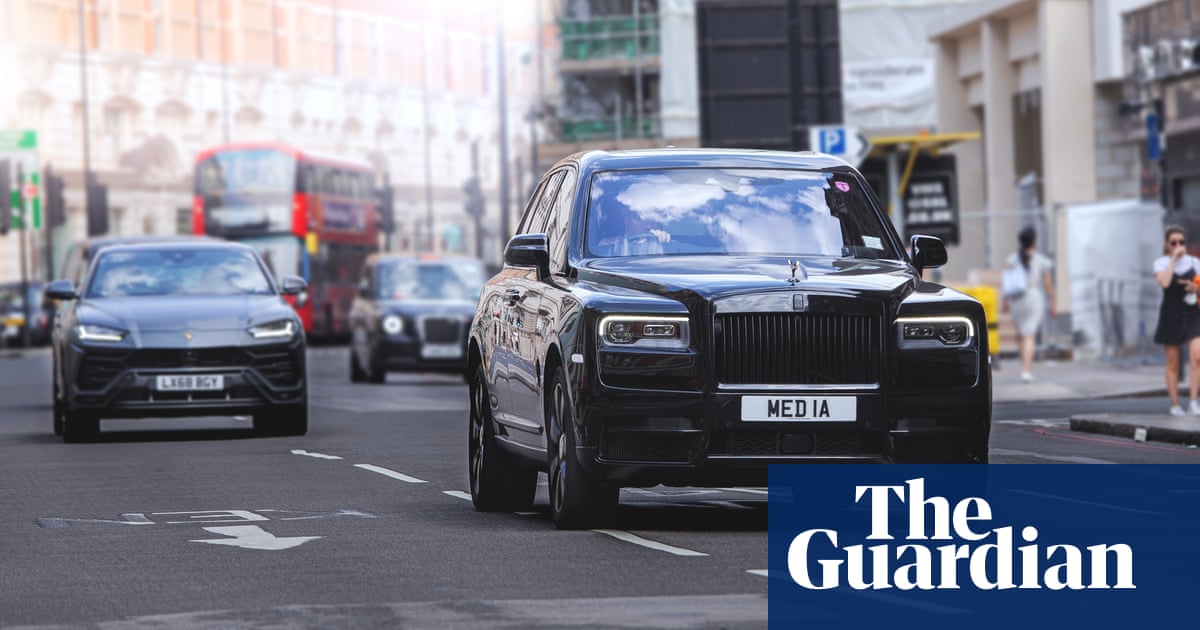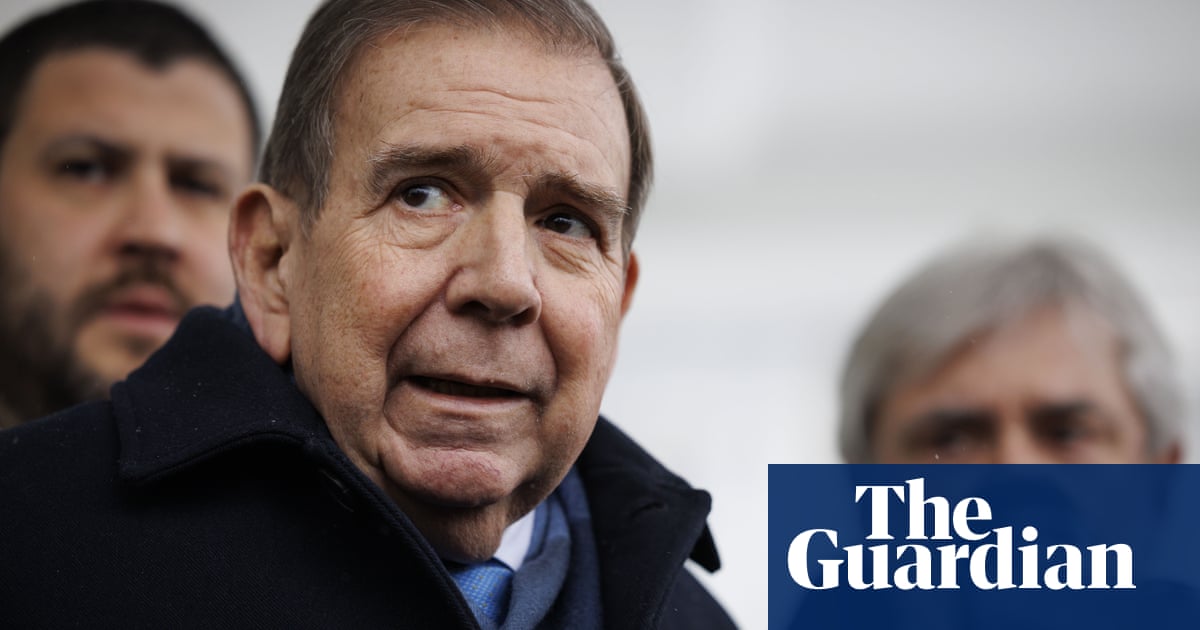Mary Holewinski lives in Carrollton, Georgia, home turf for the far-right congresswoman Marjorie Taylor Greene. But Holewinski is a Kamala Harris supporter and has a sign in her yard. It draws some nasty looks, she said. “I’ve lost neighbor friends.”
It helps that Carrollton is a college town, and discussing politics is possible – to an extent. “I feel like the people I live around, you can sit down and have a conversation with them, and they are willing to listen … but not everybody. There are some people who don’t want to hear your side of it.”
These tensions are ratcheting up, because for voters in Georgia, it can feel like the entire US election is on the line. The state went for Biden in 2020 by 11,780 votes, out of 5m ballots cast – the first time since 1992 that the state turned blue. Its 16 electoral college votes were a bulwark – psychological as well as practical – for Democrats, illustrating the nation’s rejection of Donald Trump, however slim.
Georgia has personal significance for Trump, and his war on the 2020 election results. The former president still faces charges in an election interference case in Atlanta’s Fulton county, after he made what he described as a “perfect phone call” to the Georgia secretary of state, Brad Raffensperger, asking him to “find” another 11,800 votes. A Georgia win would represent belated validation for the former president.
Now the question is which Georgia will turn out in greater force this year: the Democratic-leaning Georgia represented by the burgeoning Atlanta suburbs, or the Georgia where conservatism holds sway in its smaller towns and rural regions. Polling suggests that Trump has a lead by one to two points, well within the margin of error.
The election is already under way. About 7 million Georgians are registered to vote and about 3 million voters – more than 40% of the electorate – have already gone to the polls, setting early voting records each day.
Both Harris and Trump may as well have leased apartments in Buckhead, an upscale part of Atlanta, for all the time they’re spending in Georgia in the last-minute election push. Earlier this month, Trump rallied at a sports arena in the northern Atlanta suburb of Duluth, in the middle of one of the most diverse areas of the state. Harris appeared on Thursday with Barack Obama and Bruce Springsteen.
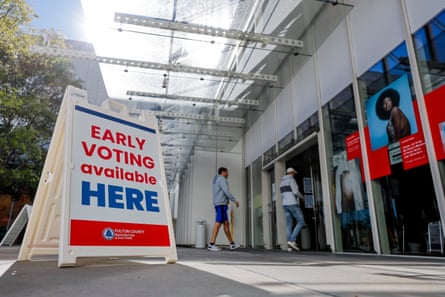
Suburban moderates in the Atlanta region turned on Trump in 2020, and he appears to have done little in the years since to win their favor. Much has been made of Republican hopes of targeting Black men – about 1 million of Georgia’s 7 million registered voters – as a potential swing bloc for votes. The difference between a Democrat winning 80% and 90% of their votes will probably be larger than the overall margin of victory.
But Georgia is no longer a state defined by Black and white voters. Asian and Latino population growth has changed the political landscape in suburban Atlanta, which helped drive the Biden victory there in 2020. Turnout in that voting demographic has been a challenge for both parties.
The politics of Georgia are a delicate dance of cooperation between Atlanta, which tends Democratic, and the rest of the state. More than half the state’s population lives in the metro area of Atlanta. Music by Atlanta’s hip-hop artists has long dominated the charts. Marvel films its movies on Atlanta’s streets. Dozens of Fortune 500 companies are headquartered in the Atlanta area, from Home Depot, UPS and Southern Company to mainstays Coca-Cola and Delta.
-
Don’t miss important US election coverage. Get our free app and sign up for election alerts
Outside Atlanta, Savannah and pockets of Black voters in south Georgia’s historic Black belt, Georgia is solidly conservative. The Republican governor, Brian Kemp, remains the most popular political figure in the state. Moderate liberals approve of how he handled Trump’s election interference claims. Even Maga Republicans grudgingly acknowledge that his resistance to pandemic closures and libertarian gun position matched their interests.
Rural, conservative Georgia is more likely to be religiously fundamentalist, less diverse and occasionally reactionary. Georgia has a six-week abortion ban because even the business wing of the Republican party in Georgia, which is solidly in charge of the state’s government, crosses evangelicals on that issue at its peril.
The party’s challenges are exemplified by Rabun county, in Georgia’s picturesque, tourist-friendly mountains on the border of North Carolina. Here, and elsewhere, it is attempting to heal the standing conflict between conventional conservative Republicans and the Maga insurgency on the right.
Rabun county Republicans have hosted a range of events, from a traditional low-country boil to a firearm raffle and screenings of a Reagan biography at the last remaining drive-in, said Ed Henderson, secretary of the Rabun county Republican party. Local Republicans have established a detente between the Maga wing and traditional conservatives, he said.
“We’re not imposing purity tests on candidates,” Henderson said. They also don’t view Democrats as an existential threat. “They’re not demons with horns on their head, or Satan worshippers. They’re the opposition.”
People from traditionally Democratic areas began moving into Rabun county during the pandemic, attracted by its lower cost of living and extraordinary natural beauty. The area historically favors Republicans by about four to one.
But in a close race, chipping away at that margin may make the difference, said Don Martin, chair of the Rabun county Democrats. “If we can get Republicans down to 70% here, we will win the state.”
after newsletter promotion
Both parties now see early voting as key. Trump has reversed his skepticism of early voting and absentee ballots, a posture that may have made the difference between winning and losing in 2020. His repeated refrain on the road in Atlanta is for turnout to be “too big to rig”, falsely suggesting that Democrats stole the 2020 election and intend to steal this one.

Historically in Georgia, Democrats have been more likely to vote early than Republicans. But Trump has pointedly instructed his supporters to vote early in person in Georgia, and many appear to be doing just that. So far this year, there’s little difference in turnout between metro Atlanta counties with large Democratic voting majorities and Republican-heavy rural counties.
Ralph Reed, director of the Faith and Freedom Coalition and a venerable figure on the Christian political right, made a point of telling conservative voters to vote early at a recent faith town hall in Zebulon, about 90 minutes south of Atlanta.
“We cannot and must not wait until election day to vote,” he said. “If you let them dominate the early vote for two or three weeks and run up a million-, or a million-and-a-half-vote margin, then we are like a football team trying to score three touchdowns in the fourth quarter … If you want the texts and calls to stop, you need to vote, and you need to vote early.”
And early concerns about Hurricane Helene disrupting the election appear to be unfounded so far. Turnout in areas affected by the devastating September storm is only slightly below that of the rest of the state.
Gwendolyn Jordan lives in Grovestown, two and a half hours east of Atlanta and in the damage zone of Hurricane Helene. Two weeks ago, as early voting started, some residents were still without power, she said.
Yet early turnout in her county is very slightly above the state average. Though Columbia county went almost two to one for Trump in 2020, Jordan is a Harris supporter. The role of the federal government and the competence of a presidential administration is no abstraction in the wake of a hurricane, she said.
“I believe there’s going to be a big difference, because Kamala Harris is more for the people under the $400,000 income range, the people that really need the help,” Jordan said. “You know that’s who is struggling right now. We just had a hurricane that did a lot of damage to people.”
In 2020, it took two weeks for Biden’s victory in Georgia to be confirmed. This year there was the prospect of other delays, after an effort by the Trump-aligned state board of elections to allow local elections officers the right to withhold certifications, to conduct open-ended investigations into poll irregularities and to mandate hand-counts of ballots on election night.
But two superior court judges ruled the changes unconstitutional and the state’s superior court let the rulings stand pending appeal, which will not be heard until after the election.
Georgia’s wounds from the fight over the election results in 2020 haven’t completely healed. And people are preparing themselves for a fresh round after voting concludes in November.
“I could care less about whether you like [Trump] or not. It’s not a popularity contest,” said Justin Thompson, a retired air force engineer from Macon. “It’s what you got done. And he did get things done before the pandemic hit. And the only reason why he didn’t get re-elected was because the pandemic hit.”

.png) 2 months ago
23
2 months ago
23
